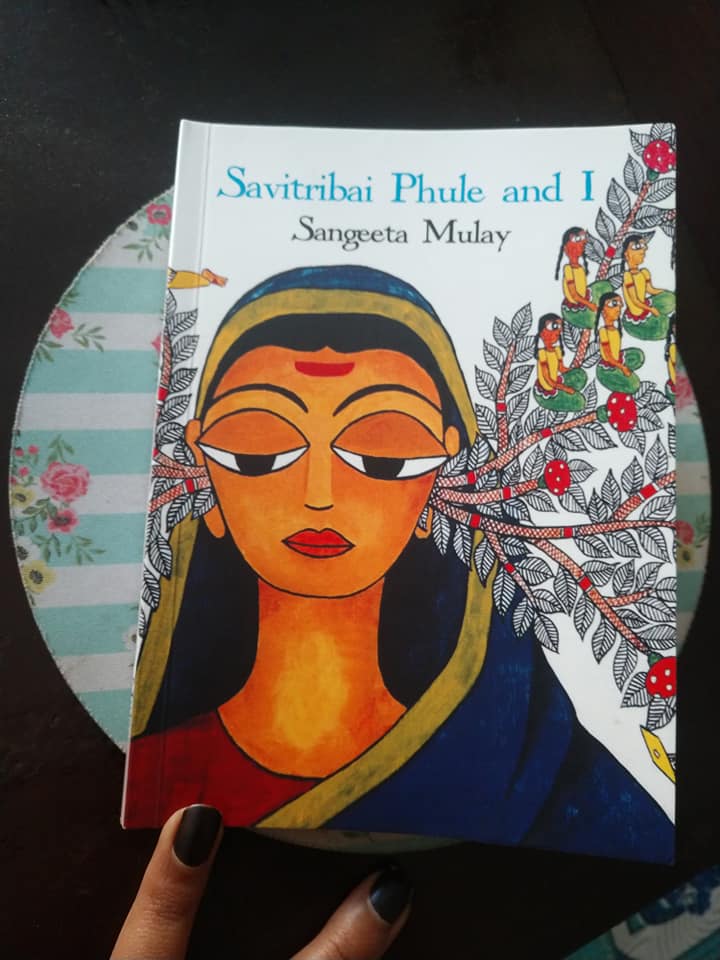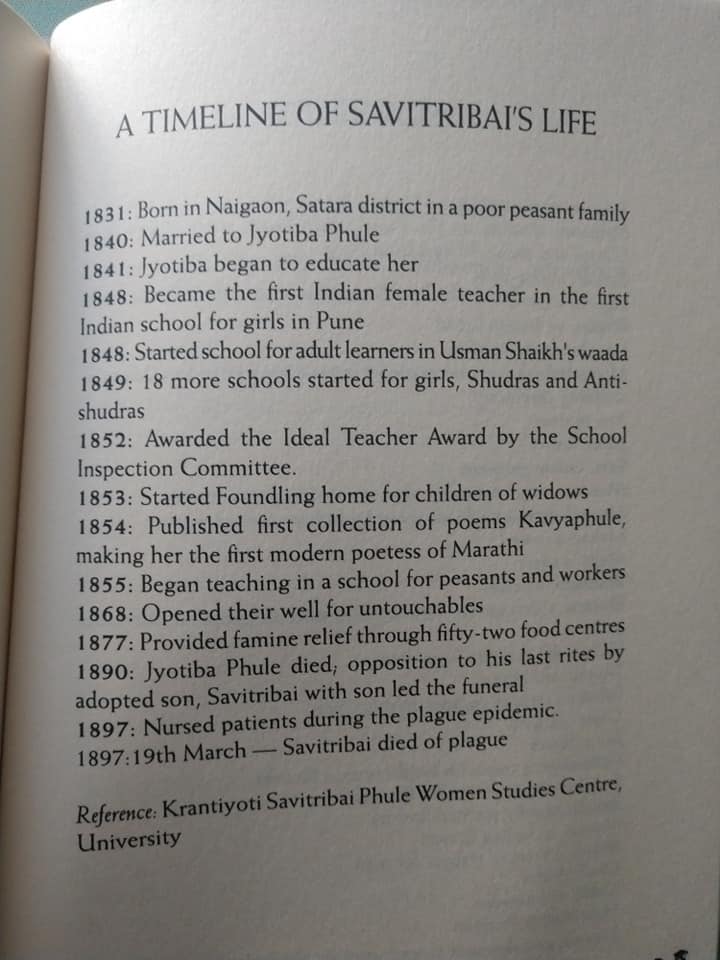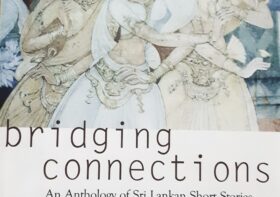Savitribai Phule and I: Sangeeta Mulay
Article by: Rituparna Sengupta
(This note was first published on Facebook by Rituparna. We thank her for permitting us to put up it on our website – pustakam.net)

Sometimes a book tells you when to read it. 190 years ago, on this day, Savitribai Phule was born. I spent this morning reading Sangeeta Mulay’s charming book Savitribai Phule and I. It’s the story written in the voice of a young Dalit girl’s struggles to fight shame, humiliation, hatred, isolation to persevere with her education and build a life and identity of pride and dignity for herself. Somewhere along the way, at a moment of deep self-loathing and despair, she discovers a diary—the hitherto undiscovered (fictional) diary of Savitribai Phule. Curiously she devours the book, and slowly, a world of possibilities opens up before her, filling her both, with a sense of gratitude and humility as well as a sense of responsibility towards Savitribai’s legacy. Her life soon begins to follow the trajectory of Savitribai’s and she builds a resolve to reach out for help and confront the internal and external obstacles in her way to get through her college education. She finds friendship, solidarity, a support system, and confidence that she is not a worthless usurper but in her rightful place in the world. She also makes it her personal mission to tell the world about Savitribai.
The book is written by a Savarna and is acknowledged as such. And that is apparent in some instances. But overall, it is sensitively and respectfully written, fusing fear, anxiety, shame, hope, jubilation, pride. It brings into focus conversations we should be having—about the stigma of being a ‘Reservation’ candidate, the resentment of peers as well as educators, the shifting nature of caste identity that becomes invisible as a marker of privilege in some cases and intolerable as a means of assertion in others, the importance of active Savarna participation in the anti-caste fight, the imperative to ‘restore’ important histories in public memory, the need for respecting the nature of some lone battles…All this, in accessible language, inside a beautifully designed book with trademark stunning cover art by Malvika Raj, published by Panther’s Paw (link in comment below).Most of all, it is a fitting tribute to Savitribai Phule. I don’t recall hearing her name in school. Heard it faintly in college. It was only much later, and especially during the course of my PhD, that I properly discovered lost histories that acquainted me with names like hers and Jyotiba Phule’s (#couplegoals), Fatima Sheikh’s and Begum Rokheya Shekhawat Hossain’s. How much each of us, especially but not only girls (whether Muslim or Dalit or neither) owe to these women and their allies. What a crime that they have been made to disappear from our collective reckonings of ‘History’. How differently we may have learnt to see the world and our place in it had we been taught about their existence and their struggles that by no means are over today, almost two centuries later.

In the book, there is a petition and a movement, proposing that Savitribai’s birthday be celebrated as National Girls’ Education Day—a suggestion that creates much furore and backlash. I think we can do better. Today should be commemorated as Teachers’ Day. Because meaningful education is not that which perpetuates and protects privilege and creates obedient and respectful little robots. Education is that which is inclusive and welcoming, which opens up doors for many when they were none before; it is relevant and interesting and exciting and encourages us to think and act freely. And this is exactly what the Phules as teachers stood for. They understood how vital education is and also that it is not limited to the classroom or school. This is why they opened the first-ever school in India to girls of all castes and eventually also shifted attention to adult learners and peasants and workers. This is why they opened up their home as a shelter for widows and their children and their well for ‘untouchables’, this is why they did famine and plague relief work. Now THIS is the kind of teacher truly worth celebrating.




Leave a Reply